detail profile tito gobbi
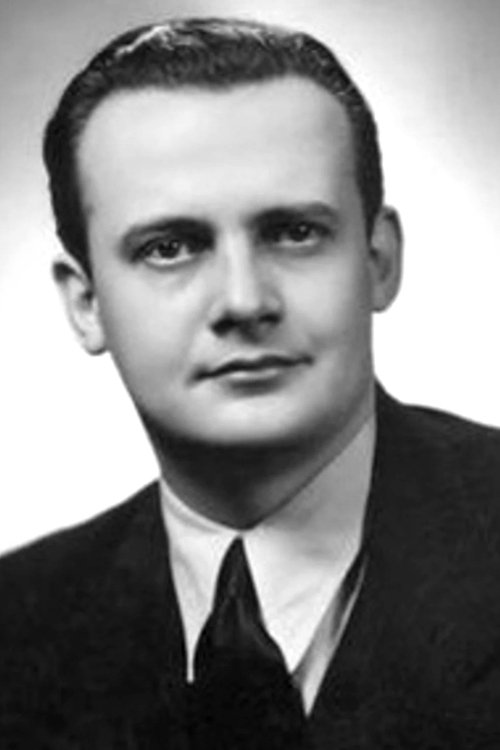
Riwayat Hidup
Tito Gobbi (24 October 1913 – 5 March 1984) was an Italian operatic baritone with an international reputation.
He made his operatic debut in Gubbio in 1935 as Count Rodolfo in Bellini's La sonnambula and quickly appeared in Italy major opera houses.
By the time he retired in 1979 he had acquired a repertoire of almost 100 operatic roles.
They ranged from Rossini's Barber through Donizetti and the standard Verdi and Puccini baritone roles to Alban Berg's Wozzeck.
He had a worldwide career as operatic baritone, appearing in (or recording the singing role) for over 25 films and, from the mid-1960s onward, was the stage director for about ten different operas which were given close to 35 productions throughout Europe and North America, including a significant number in Chicago for the Lyric Opera of Chicago.
Gobbi and Tilda had a daughter, Cecilia, who now runs the "Associazione Musicale Tito Gobbi", an organization devoted to preserving and celebrating the record of her father's contribution to opera.
He was also the brother-in-law of one of his famous colleagues at Covent Garden, the Bulgarian-born bass, Boris Christoff.
Gobbi retired in 1979 and died in Rome in 1984, aged 70.
Info Pribadi
Peran Yang Di Mainkan Tito Gobbi
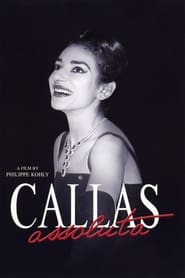 This revealing documentary from director Philippe...
This revealing documentary from director Philippe...Callas Assoluta 2007
This revealing documentary from director Philippe Kohly examines the storied life of renowned soprano Maria Callas, from her troubled childhood in New York City to her scandal-laden but triumphant international career in opera. Featuring archival interviews with Callas herself and footage of contemporaries such as her lover Aristotle Onassis, this celebration of "La Divina" pays tribute to her enduring legacy some three decades after her death.
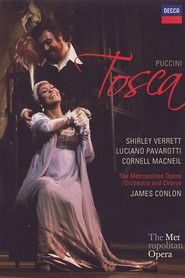 A stellar cast brings Puccinis spellbinding...
A stellar cast brings Puccinis spellbinding...Tosca 1978
A stellar cast brings Puccini’s spellbinding opera to life, seizing every opportunity to thrill the audience. Luciano Pavarotti is Cavaradossi, the painter and political revolutionary in love with the beautiful and famous singer Tosca (the riveting Shirley Verrett). Rome’s diabolical chief of police, Baron Scarpia (Cornell MacNeil), wants Tosca for himself—but he underestimates the fury of a woman in love. With torture, murder, and a suicide in its final moments, Tosca packs more dramatic punches than most other operas—and this classic telecast captures them all. James Conlon conducts in a production by the incomparable Tito Gobbi, one of the great Scarpias of the 20th century.
 At the beginning of 1964 the music...
At the beginning of 1964 the music...Maria Callas Sings Tosca, Act II 1964
At the beginning of 1964, the music world experiences something completely unexpected. Maria Callas returns to the opera stage as the prima donna. Her “Tosca” at the Royal Opera House becomes a sensation. Maria Callas wants to show everyone once again that she deserves the title of “prima donna assoluta.” On the condition that star director Franco Zeffirelli take over the direction, the exceptional singer agrees to sing the role of Tosca. The BBC recorded the 2nd act of the opera for television. It is one of the most dramatic acts in opera history: in order to free the painter Cavaradossi from the hands of torturers, Tosca ends up murdering the police chief Scarpia. The film footage is one of the rare opportunities to see Maria Callas in an opera performance and to experience her highly emotional performance art and vocal abilities...
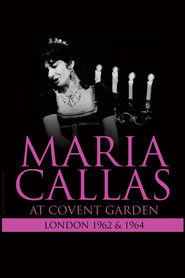 Maria Callas legendary live performances from...
Maria Callas legendary live performances from...Maria Callas: At Covent Garden, 1962 and 1964 1962
Maria Callas’ legendary live performances from the Royal Opera House, Covent Garden, from 1962 and 1964 celebrate her triumphant return to the Covent Garden stage. Repertoire from these performances include Verdi: Tu che le vanità (Don Carlo), Bizet: Habanera & Séguedille (Carmen) and Puccini: Tosca (Act II complete). Her vivid portrayals of the tragic Elisabeth de Valois, the tantalising Carmen, and her vulnerable Tosca (directed by Franco Zeffirelli) captured the hearts of the London audiences. This is Maria Callas as the world remembers her. Renato Cioni, Tito Gobbi, Robert Bowman, Dennis Wicks Orchestra & Chorus of the Royal Opera House, Covent Garden- Conducted by Georges Prêtre & Carlo Felice Cillario.
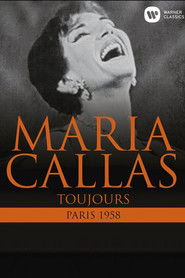 The career of Maria Callas was...
The career of Maria Callas was...Maria Callas: Débuts à Paris 1958
The career of Maria Callas was just a bit too early and too brief to receive full and satisfying video documentation like that now being accorded to such singers as Renée Fleming and Luciano Pavarotti. This black-and-white televised recital (Callas's Paris debut) took place at the Paris Opera on December 19, 1958 when television was still in its infancy. We might wish that it had happened earlier, when her voice was in better condition, or later, when video recording technology was more advanced--so that, for example, we would not have to take the narrator's word that Callas is wearing a red dress. But this is probably the best available Callas video recording, and her fans will welcome it warmly. Visual elements were as important as the vocal dimensions in her art.
 The film covers a hundred years...
The film covers a hundred years...House of Ricordi 1954
The film covers a hundred years in the lives of the Ricordi family, the Milan publishing house of the title, and the various composers and other historic personalities, whose careers intersected with the growth of the Ricordi house. It beautifully draws the parallel between the great music of the composers, the historic and social upheavals of their times, as well as the "smaller stories" of the successive generations of Ricordi.
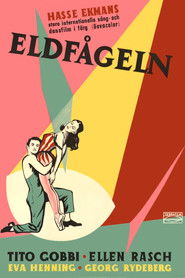 Italian singer Mario Vanni visits the...
Italian singer Mario Vanni visits the...The Firebird 1952
Italian singer Mario Vanni visits the Royal Opera in Stockholm and fall in love with ballet dancer Linda Corina.
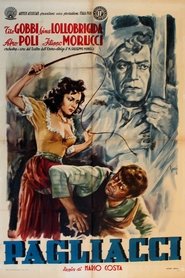 Pagliacci is a 1948 Italian film based...
Pagliacci is a 1948 Italian film based...Pagliacci 1948
Pagliacci, is a 1948 Italian film based on Ruggero Leoncavallo's opera Pagliacci, directed by Mario Costa. The film stars Tito Gobbi and Gina Lollobrigida. It recounts the tragedy of Canio, the lead clown (or pagliaccio in Italian) in a commedia dell'arte troupe, his wife Nedda, and her lover, Silvio. When Nedda spurns the advances of Tonio, another player in the troupe, he tells Canio about Nedda's betrayal. In a jealous rage Canio murders both Nedda and Silvio. The only actor in the cast who also sang his role was the celebrated Italian baritone, Tito Gobbi, but the film is largely very faithful to its source material, presenting the opera nearly complete.
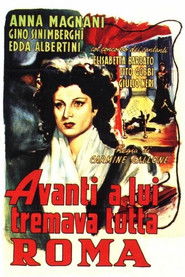 An opera singer hides an American...
An opera singer hides an American...Before Him All Rome Trembled 1946
An opera singer hides an American soldier in his house in Nazi-occupied Rome.
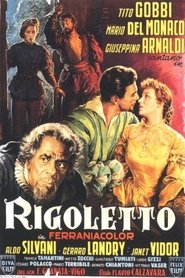 This tragic story revolves around the...
This tragic story revolves around the...Rigoletto 1946
This tragic story revolves around the licentious Duke of Mantua, his hunch-backed court jester Rigoletto, and Rigoletto's beautiful daughter Gilda. The opera's original title, La maledizione (The Curse), refers to the curse placed on both the Duke and Rigoletto by a courtier whose daughter had been seduced by the Duke with Rigoletto's encouragement. The curse comes to fruition when Gilda likewise falls in love with the Duke and eventually sacrifices her life to save him from the assassins hired by her father.
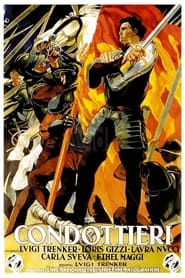 Returned from exile where he accompanied...
Returned from exile where he accompanied...Giovanni de Medici: The Leader 1937
Returned from exile where he accompanied his mother Caterina Sforza, Giovanni de 'Medici (1498-1526), becomes, under the name of Giovanni delle Bande Nere, captain of fortune at the service of the idea of a united Italy.
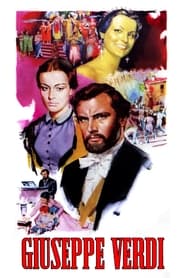 The life and loves of great...
The life and loves of great...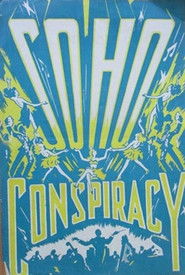 The plans of a publicity agent...
The plans of a publicity agent...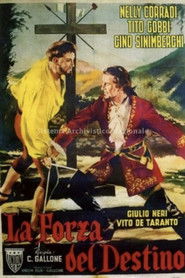 Film version of the Verdi opera...
Film version of the Verdi opera...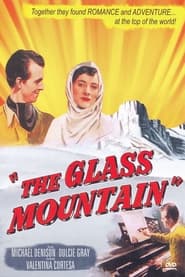 An aspiring composer in the British...
An aspiring composer in the British...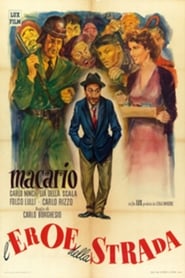
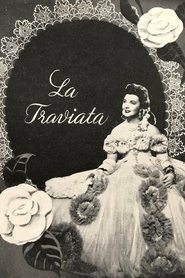 A courtesan sacrifices her relationship with...
A courtesan sacrifices her relationship with...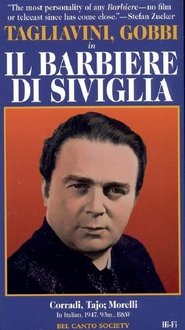 A crafty barber acts as a...
A crafty barber acts as a...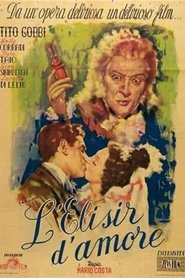 Nemorino is hopelessly in love with...
Nemorino is hopelessly in love with...